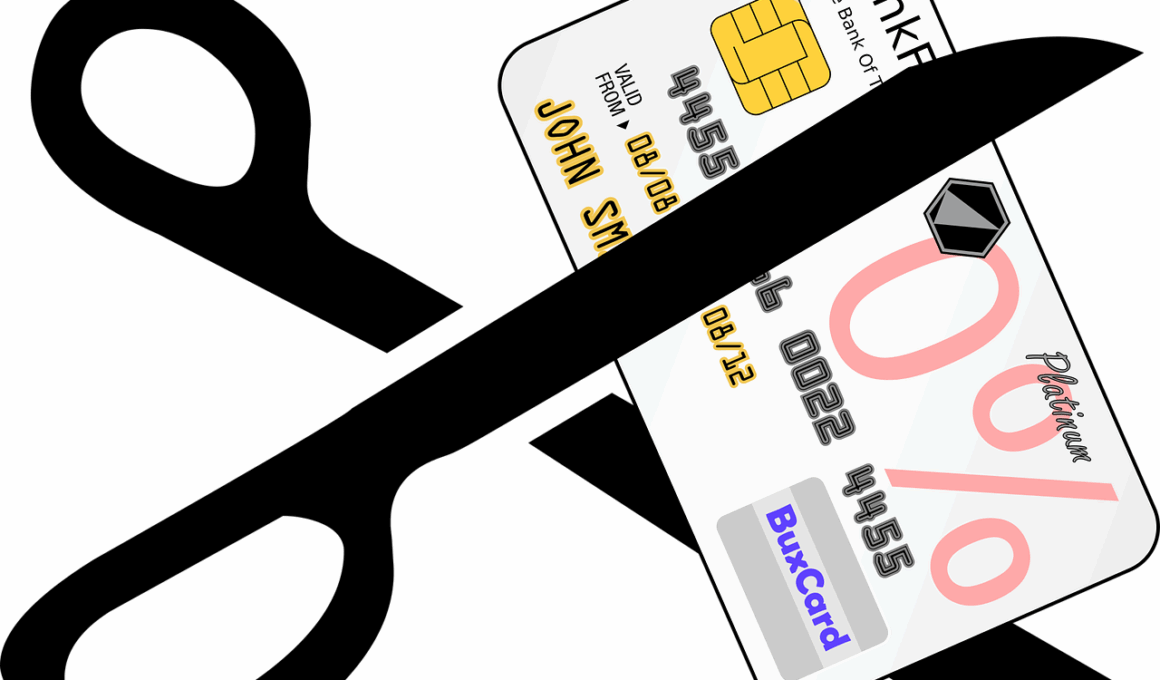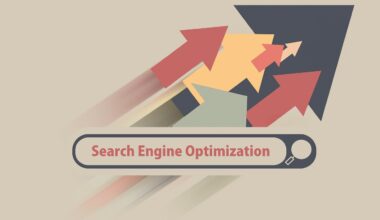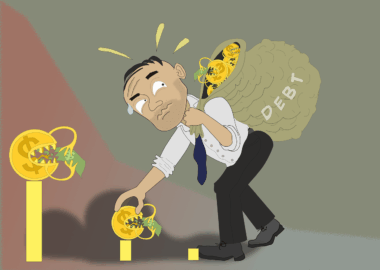Avoiding Credit Card Debt: Financial Mistakes You Shouldn’t Make
Many people struggle with credit card debt simply because they ignore financial responsibility. The first mistake is accumulating credit cards without understanding the interest rates. While having multiple cards might seem convenient, it can lead to higher rates if payments are not managed well. Understanding these rates plays a crucial role in avoiding financial traps. Another mistake involves only making minimum payments. This habit can extend your debt period significantly, leading to unnecessary interest charges. It’s beneficial to pay more than the minimum due. Additionally, some individuals fall prey to impulse purchases while using credit. Keeping track of spending is essential to avoid falling into this habit, which can quickly escalate debt levels. A third mistake is overlooking the annual percentage rates (APRs) when transferring balances. It’s vital to consider how these rates can affect your overall financial situation. Moreover, neglecting to budget effectively can also lead to financial instability. Setting a budget helps to ensure that expenses don’t exceed income, providing a clear pathway to manage credit responsibly. By recognizing these pitfalls, individuals can work towards a more secure financial future.
Understanding the Importance of Timely Payments
Another crucial aspect of managing credit cards responsibly is ensuring that payments are made on time. Late payments can not only incur hefty fees but also significantly impact your credit score. It’s essential to establish a consistent payment schedule. Setting reminders or automating payments can alleviate the burden and help you avoid this common financial mistake. Ignoring the impact of credit utilization is also a common pitfall. Keeping balances low in relation to your credit limit is ideal for maintaining a healthy credit score. Aim to keep your utilization under 30%. Additionally, some individuals may fail to review their credit card statements regularly. This oversight can result in missed errors or unauthorized charges. Analyzing your statement offers insights into spending habits and can help identify areas for improvement. Furthermore, using credit cards for non-essential expenses may create unmanageable debt. Instead, focus on using them for necessary purchases while ensuring you can repay the balance. By prioritizing timely payments and maintaining good financial habits, individuals can avoid the pitfalls associated with credit card debt.
One of the most significant financial mistakes people make is treating a credit card like an extension of their income. This misconception can lead to heavy reliance on credit, making it hard to distinguish between essential spending and desire-driven purchases. Associating credit cards with free money often results in high debts that accumulate over time. It’s vital to understand that each purchase should be necessitated by actual income. Many also forget the importance of an emergency fund. Without a financial safety net, unexpected expenses can lead to reliance on credit cards, further worsening the debt situation. Building an emergency fund is advantageous for covering unforeseen costs. Furthermore, individuals commonly overlook rewards and benefits that come with credit cards. Not understanding these rewards can mean missing out on valuable perks. Utilizing credit cards efficiently allows you to gain benefits like cash back or travel miles. However, ensure that these advantages are outweighed by responsible spending. Maintaining awareness of your financial habits protects against accumulating debt. By educating yourself about credit cards and implementing better practices, you can avoid costly mistakes associated with credit card use.
Knowing When to Seek Help
Recognizing when to seek professional advice is another crucial step in avoiding credit card debt. Many people may feel overwhelmed and unsure where to turn when in financial turmoil. Engaging with a financial advisor can provide tailored strategies for managing your debts effectively. This approach helps prevent detrimental mistakes associated with self-management in tough situations. Credit counseling services can also offer assistance and education about budgeting. Enrolling in a program can guide you through managing your finances better. Many individuals underestimate the impact of consolidating debts. By combining multiple credit accounts into one, it’s often possible to secure a lower interest rate. This process simplifies tracking payments and aids in achieving financial clarity. Another option is negotiating with creditors directly. Some credit card companies may be willing to reduce interest rates or restructure payment plans. Communication is key to finding manageable solutions. Your financial well-being should be a priority, and seeking help when needed is a proactive approach. Recognizing when to ask for assistance is a vital skill that can help lead to better financial decisions.
In addition to seeking help, evaluating your credit card choices is an important consideration. Many individuals remain loyal to credit cards without assessing whether they are receiving the best benefits. Each credit card offers varying terms, fees, and rewards structures that can significantly affect your financial situation. Regular assessments of your cards can highlight potential savings. Moreover, it’s also essential to take note of hidden fees. Many cards come with various charges like annual fees, over-limit fees, and foreign transaction fees that can drain your finances. Familiarizing yourself with your card’s features can help ensure you aren’t overspending on unnecessary costs. A crucial mistake to avoid is racking up debt before making a budget. An effective budget lays out a clear picture of incomes and expenses to guide spending habits. When individuals neglect this essential step, they often face the consequences of overspending. Knowing your financial limits while creating a budget enables you to utilize credit cards responsibly. Always remember that being informed is a powerful tool in maintaining financial health.
Developing Healthy Spending Habits
Additionally, developing and maintaining healthy spending habits is integral to avoiding credit card debt. Behaviorally, the tendency to overspend is amplified during sales or special promotions. It’s crucial to be conscious of these triggers and establish a mindful approach to shopping. Evaluate whether a purchase is a need or merely a want. This simple exercise helps differentiate between essential expenses and impulsive buys, which reduces financial strain. Implementing a 24-hour rule for purchases can further curb impulse buying. Waiting a day before action allows for reflection on the necessity of the item. Also, consider seeking motivation for positive spending habits through the support of family or financial groups. Having a financial accountability partner can enhance your commitment to avoiding debt. Engage with others who share similar goals, providing encouragement and constructive discussions about financial choices. It’s also effective to keep a spending journal. Documenting daily expenditures fosters awareness and helps identify trends that might lead to overspending. By nurturing positive spending habits, individuals can avoid falling back into the trap of credit card debt. Consistency in your approach paves the way for better financial management.
Reflecting on previous financial decisions plays a critical role in developing avoidance strategies for accruing credit card debt. Reviewing past mistakes allows individuals to recognize patterns and evaluate their decision-making processes. Additionally, self-reflecting on spending behaviors could encourage healthy financial habits. Habitually carrying credit card debts can trigger emotional responses, potentially leading one to spend impulsively as a form of comfort. It’s essential to confront the emotional aspect of spending and acknowledge it as a barrier to financial well-being. This understanding facilitates the journey toward healthier financial practices. Another measure involves exploring alternative payment methods. Cash or debit cards can limit the impulse to overspend since they provide a tangible representation of funds available. Relying too heavily on credit cards may disconnect you from realizing the true cost of expenditures. Education is paramount, as knowledge around interest rates and fees empowers individuals to make informed decisions. Lastly, setting clear financial goals serves as a roadmap in your financial journey. When the focus shifts to positive objectives, attention toward managing credit card usage becomes more manageable. Prioritize your financial health today for a secure tomorrow.





